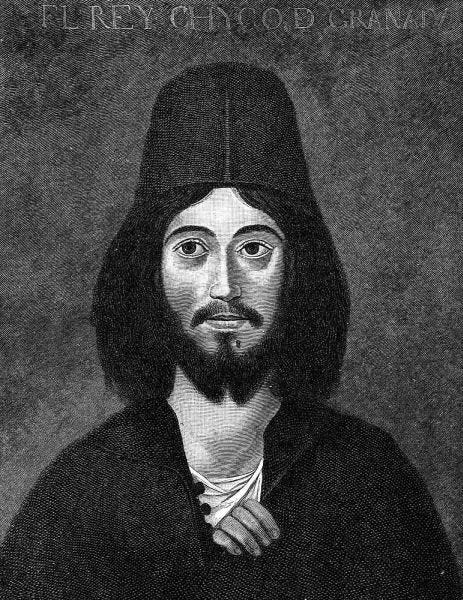Today in European history: the Treaty of Granada (1491)
The final remaining Islamic kingdom on the Iberian Peninsula surrenders to King Ferdinand and Queen Isabella.
If you’re interested in history and foreign affairs, Foreign Exchanges is the newsletter for you! Sign up for free today for regular updates on international news and US foreign policy, delivered straight to your email inbox, or subscribe and unlock the full FX experience:
The end of the “Reconquista” came on January 2, 1492, when the last Muslim ruler of Granada, the Nasirid Sultan Abu Abdullah Muhammad XII (“Boabdil” to the Spaniards, for whom “Abu Abdullah” was too hard to pronounce), went into exile in Morocco. But by that point his departure was a formality. Boabdil was obliged to leave by the Treaty of Granada, which he signed, along with the victorious King Ferdinand of Aragon (d. 1516) and Queen Isabella of Castile (d. 1504), on November 25, 1491.

The Treaty of Granada ended the Granada War (go figure), which started in 1482 after an incredibly ill-advised Granadan attack on the Castilian city of Zahara, ordered by the reigning Sultan (and Boabdil’s father) Abu al-Hasan Ali. The Granadans took Zahara, but it was a Pyrrhic victory if ever there was one. Isabella had only just won out in the struggle to succeed her brother, Henry IV (d. 1474), as ruler of Castile, which meant that the proto-Spanish kingdoms were now united by virtue of her marriage to Ferdinand of Aragon. This was bad news for the Granadans. Not only was the combined Aragonese-Castilian army much stronger than the army that Abu al-Hasan Ali could muster, but the combined kingdom also had the resources to bring in artillery experts to design and craft plenty of siege guns.
Also bad news for the Granadans was the fact that Boabdil decided to revolt against his father and declare himself sultan. Shortly after he began his rebellion, Boabdil was briefly captured by Ferdinand and Isabella. But quickly realizing what they had, they released and even supported the young prince in order to throw the Granadans into civil war. By 1487, Boabdil had won his rebellion and was the ruler of Granada, which probably would not have been possible without the support of the Spanish monarchs. But if he was expecting his former backers to let him rule in peace as their vassal, he was in for a real shock when they started gobbling up his territory instead. He sent for aid from Muslim rulers in Fez and Egypt, but the most he got was a strongly worded “cut the crap” letter from the Egyptian Mamluk Sultan Qaitbay to Ferdinand, which shockingly had no effect.
Ferdinand and Isabella’s army besieged Granada in April 1491, and the surrender of the city was a foregone conclusion. The treaty is actually a marvel of religious tolerance, one that would be completely discarded in the frenzied forced conversion/expulsion/Spanish Inquisition period that was to follow over the next couple of centuries. It provided for Muslims in Granada to keep their property and places/freedom of worship if they chose to stay, and allowed them safe passage to North Africa if they chose to leave. It stipulated that Muslims in Granada should be governed according to Islamic law and not forced to convert to Christianity. It even exempted Granadan Muslims from taxation for some interim period of time. Boabdil went off into exile in Fez, where he lived until his death in 1533.
The religious protections enshrined for all time in the treaty remained in place for less than a decade. By 1499, a scant 8 years later, Muslims living in Granada felt mistreated enough to revolt. Their uprising was quickly put down, but it was used as an excuse for Ferdinand and Isabella to tear up the Treaty of Granada and institute a policy of forced conversion or expulsion. One could argue that the Muslims got off easy—Jews were given the “convert or get out” choice in the Alhambra Decree of 1492, because...well, because they were Jews, let’s be honest. Ostensibly the reason was concern over the sincerity of conversos, former Jews who had converted (often under some sort of coercion) to Christianity, but medieval Christians rarely needed a reason to do terrible things to European Jews.
That wasn’t the end, though. By the second half of the 16th century, conditions even for the Moriscos, the Christian descendants of former Muslims who had converted to Christianity (and who were as thoroughly Spanish as anyone else living there), were deteriorating fast. This sparked several minor uprisings and then a second major rebellion in Granada from 1568 to 1573. Many of the Moriscos were expelled from Spain (at their own expense, no less) under royal decree starting in 1609.


